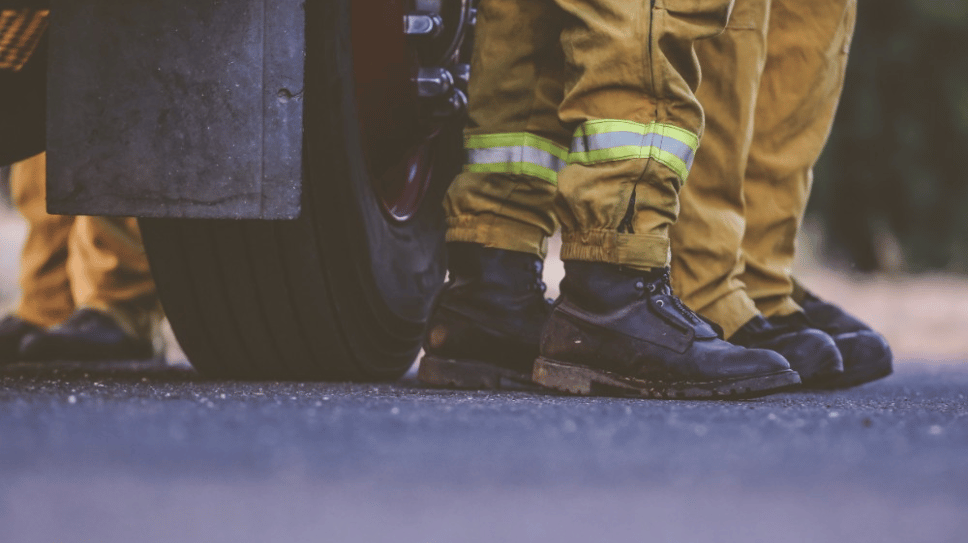Being a first responder is a big responsibility. People’s lives literally depend on those that serve them day in and day out. If they choose to seek help, it does not seem to matter because there is not a culture of seeking help built within their culture.
The motivation to seek help is lower than in some professions. First responders may feel hesitant to talk about mental health or seek treatment. When traumatic experiences occur, first responders must encourage them to work quickly because they have things they need to do and they are eager to get on with it. It is a sign of weakness to bring anything up. First responders fear to counsel, so it becomes a struggle to reach out for help. Find out more about why first responders struggle to seek help and why it matters.
Seeking Counseling
The barriers to treatment are not always personal, they may be cultural. First responder culture is resistant to mental health treatment for many reasons. It is not discussed or talked about because everyone is experiencing it. This normalizes what they see and experience rather than qualify it as traumatic or painful. The stigma surrounding mental health treatment exists within first responder culture to the point they believe they may be skipped over for important promotions if they speak out against the issues they have seen and continue to face in their own lives. There is an element of secrecy and insulation to the culture that serves as a barrier to seeking outside help.
Lack of Trust
There may also be mistrust of others where they fear criticism or negative consequences for their actions. If a police officer encounters someone and does not respond appropriately, lives may be at stake. When first responders are used to life or death scenarios on the job, they may not be able to come home and ‘turn off.’ They may keep to themselves and believe that what they go through is not understood by others. There is growing awareness of mental health in the media and society. Without trust, it is hard to navigate the healing needed to make the journey of recovery go well for first responders.
Mental Health Blinders
One of the challenges first responder culture is met with includes ‘blinders’ to the real, felt needs they experience. Quite often, officers miss work from the force, EMTs take time off, or other first responders don’t show up for shifts because they struggle to make it work with mental health challenges of the job. The departments often spend money training people but they don’t spend as many resources on supporting better mental health. The growing awareness may also come from the police officers themselves who are usually better educated than in the past, including on the topic of mental health.
Connections
Stigma looms large for first responders. The population needs to be educated about what it is people face on the job so if they choose to go into this line of work or have loved ones who do this work, they understand what it means. For counselors interested in working with first responders, there are training offered to find clients. This gives first responders a chance to meet with specialists, learn about the symptoms and issues, then explore seeking help in a supportive environment. First responders are usually the last ones to show up for counseling. They need to be met where they are at. It means visiting the places they work and seeking them out rather than waiting for them to come to counseling. They also want to know therapists are on their side and understand their needs. They are less likely to seek help if they don’t believe the therapist understands the needs of first responders.
Looking Ahead
If first responders see a counselor, they may be afraid of others finding out. Counselors can take steps to help them feel comfortable, but there may be more going on. They may be ashamed of substance use going on and want to hide this from their therapist. They may be wanting to sneak around the issues they face and not really talk about it upfront. It also means getting creative about how to meet their needs. They may not be able to deal with things up close and personal, so they need web therapy or phone counseling at first. Even the first responders who seek out help may not know what to expect or how to behave when they go to therapy. It takes time to understand the culture so think ahead about what a loved one might need if people are looking into opportunities and options.
Building a Relationship
The best thing a partnership can do is build a relationship with the first responder. What they need is people who will come alongside of them during their recovery from mental health and addiction issues. They need partners who care about their challenges. Building a relationship means building rapport and establishing trust. First responders may be less trusting upfront but if they know the people are on their side, they may finally ease up and begin to open about the issues they face. This opens them up to greater healing overall.



